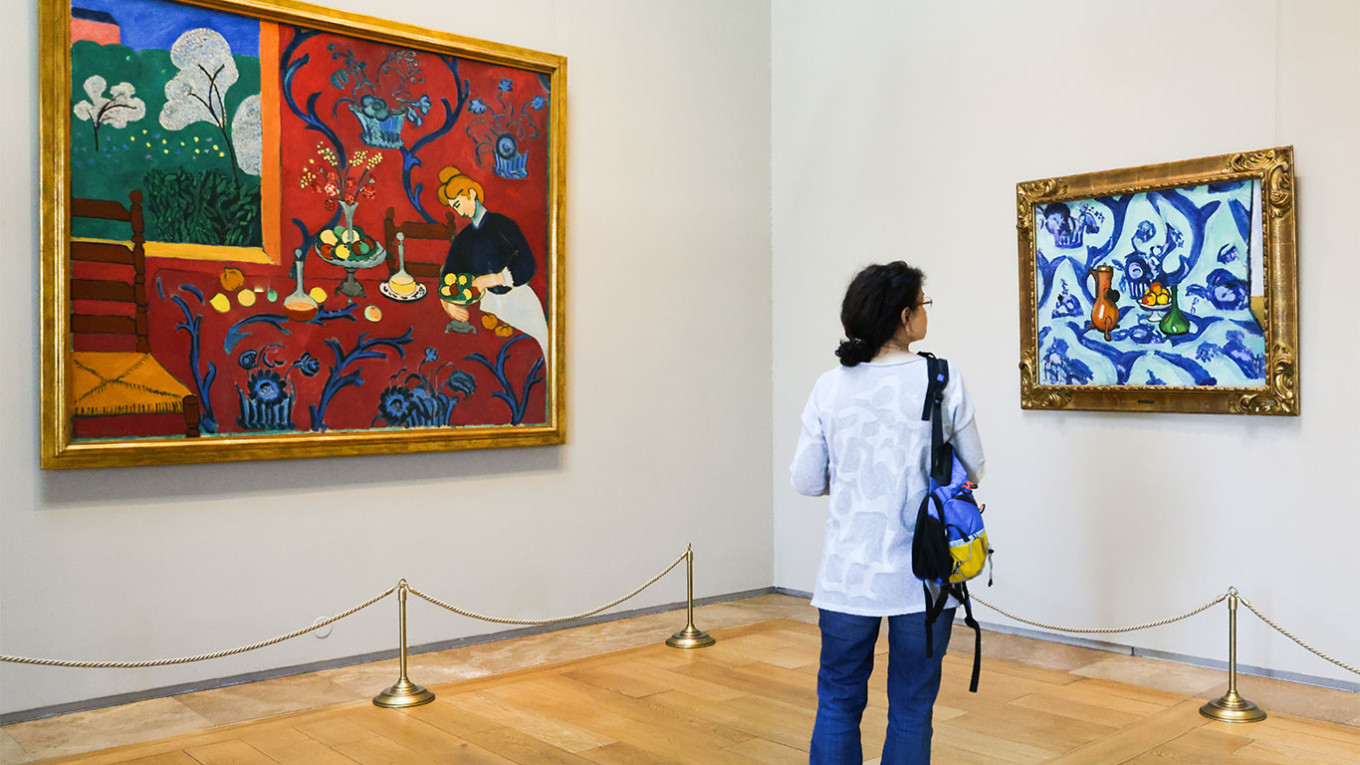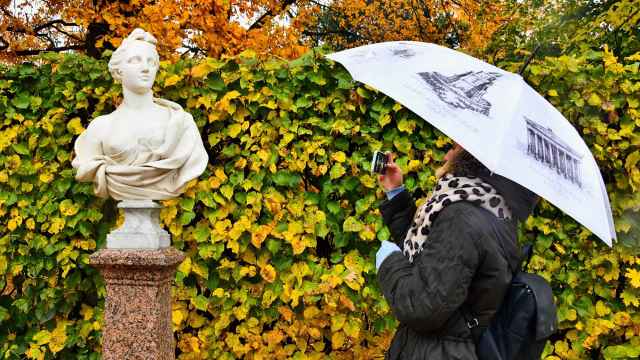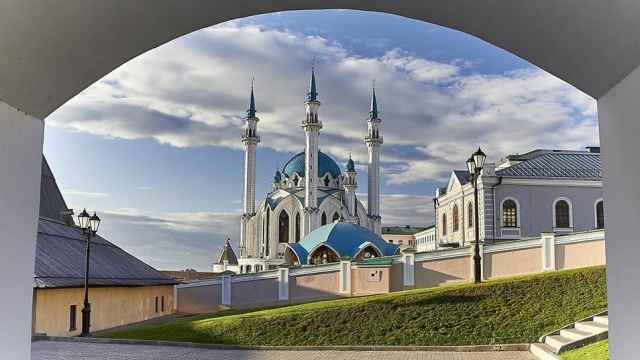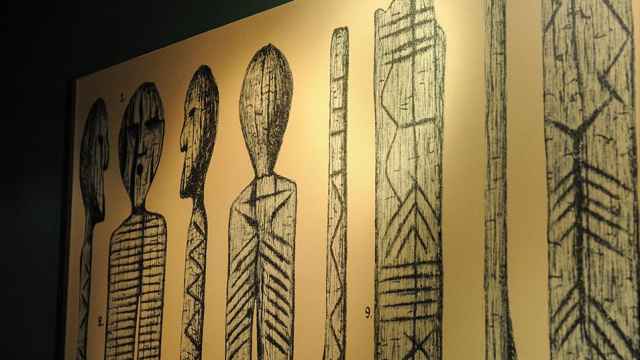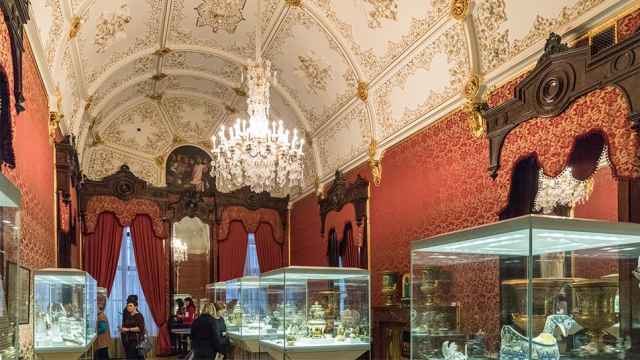The Russian invasion of Ukraine changed cultural life in Russia almost immediately. After two years of war, Russians can see the results of these changes. The director of the Hermitage Museum in St. Petersburg, Mikhail Piotrovsky, told RBK that all the contacts between Russian and European museums had been lost. He blamed it on his former colleagues. “There is a boycott, an official prohibition for any state and particularly private European museums to have dealings with Russian counterparts. The situation is worse than it was in the Soviet Union,” he said.
But all the same, Russian museums are continuing their work in the new conditions. Here are six trends that have appeared in the last year.
Changes at the top
In 2022, many artists left Russia due to their anti-war positions. In 2023, this outflow was smaller, but all the same there is a large contingent of Russian artists living and working outside Russia. Artist Olga Kirienko has been living in Spain since 2018 because she was against the occupation of Crimea, and she gave up Russian citizenship in 2023. Some artists, such as Arseny Zhilyaev, refuse to have any dealings with Russian museums.
Museums in Russia have changed radically this year with a large turnover of directors, including in the country's most important and largest museums. Yelena Pronicheva replaced Zelfira Tregulova, who headed the State Tretyakov Gallery since 2015. Pronicheva does not have an art education, but she has links to Vladimir Putin. Her father, Vladimir Pronichev, was the head of the FSB Border Service from 2003 to 2013.
Yelizaveta Likhacheva replaced Marina Loshak as the head of Moscow's Pushkin State Museum. Earlier, Likhacheva was the head of the Shchusev State Museum of Architecture. She said that the departure of Western architectural bureaus from Russia due to the war was "their choice."
Art critic Andrei Yerofeyev told Deutsche Welle that the reasons for these dismissals were the views of the directors. “The reason was not that their contracts were up,” he said. “With help from Peter the Great, Russia jumped out of the darkness of the Middle Ages, and the Pushkin State Museum was ‘a window to the West.’ Now ‘the window’ is closed. It’s politics.”
Supporting the regime
Artists who express anti-war positions cannot live and work freely in Russia. The artist Sasha Skochilenko was sentenced to seven years in a penal colony for replacing supermarket pricing labels with anti-war messages. Earlier Alisa Gorshenina, who is also known as Alice Hualice, told The Moscow Times that some private galleries continue to work with her, but the number of exhibitions in Russia has been greatly reduced.
There is no official information, but many Russian artists who do not support the politics of Putin say that they are having problems exhibiting their work. Today museums rarely cancel exhibitions due to the artists’ anti-war positions, but they almost exclusively exhibit works by artists who support the regime. For example, the artist Nikas Safronov told Moskovsky Komsomolets that Russia should remain fully isolated from the world for five years. He wholeheartedly supports the politics of Russian authorities, and in 2023 he has had personal exhibitions in Belgorod, Yessentuki, Chita, Omsk, Tyumen, and other Russian cities.
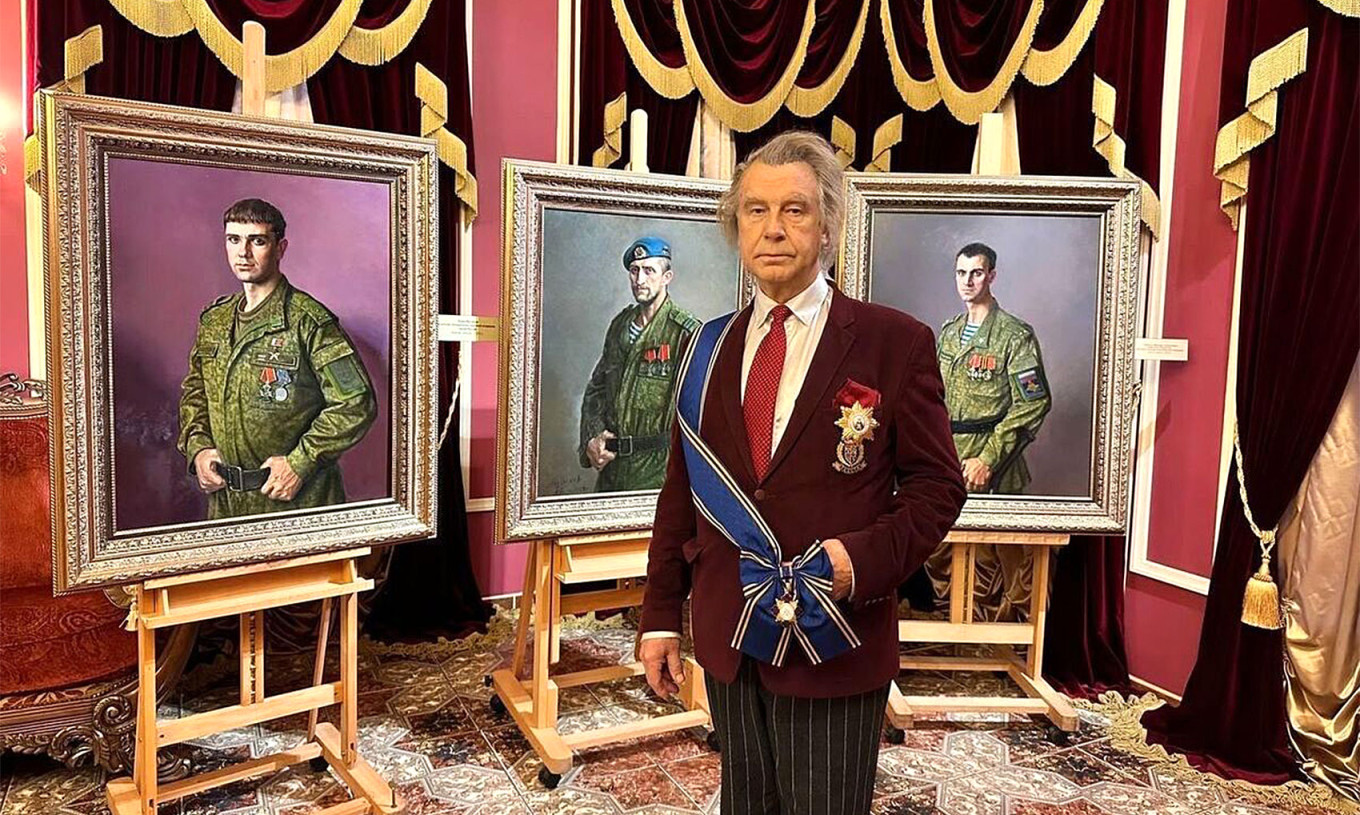
Patriotic education
The artist Alexander Shilov does not have problems with exhibitions either; he supported the Russian invasion of Ukraine. In September, he had a solo exhibition in his Moscow gallery of his portraits of Russian heroes of the "special military operation."
Works by Dmitry Belyukin and Mikhail Poletayev are also popular. Both artists are part of the Grekov Studio of Military Artists and support official policies. They paint historical works and religious art. Military conflicts are not presented from the point of view of historical trauma and responsibility; they are used for “patriotic education.” Religious art supports “Russian values,” that is, the Russian Orthodox Church as the center of Russian life.
New museums
In the spring Putin signed an order for museums about the special military operation to be built outside Moscow. Now they have been opened in Orekhovo-Zuyevo in the Moscow region, Rybinsk in the Yaroslavl region and Stavropol in the Stavropol region. Most of the works in these museums are by people whose relatives participated in the "special military operation."
In New Urengoy, Yamalo-Nenets Autonomous Okrug, volunteers go to Donbas to collect things from soldiers and residents. Helmets, bulletproof vests, and even the bread baked by Yamal residents at the front become museum exhibits. This is “patriotic education.”
Censorship
Censorship and self-censorship are part of museum life today, and it doesn’t just concern artists with “dubious” reputations. Museums also do not work with so-called foreign agents and artists whose work can be considered pornography. The exhibition “Novikov's Wedge” was due to open at the State Russian Museum in the middle of July, but was suddenly postponed by the museum's new director, Alla Manilova, who took office in 2023. The exhibition was opened later, but in a slightly different form.
The works by Timur Novikov and other artists of his New Academy often draw nudity and homoeroticism. Moreover, Novikov announced his homosexuality in an interview with Cabinet magazine in 1995.
Russia's Supreme Court banned the so-called “international LGBT movement” a few months later. Does this mean that Old Masters’ works will also be banned as pornography? We’ll find out in 2024.
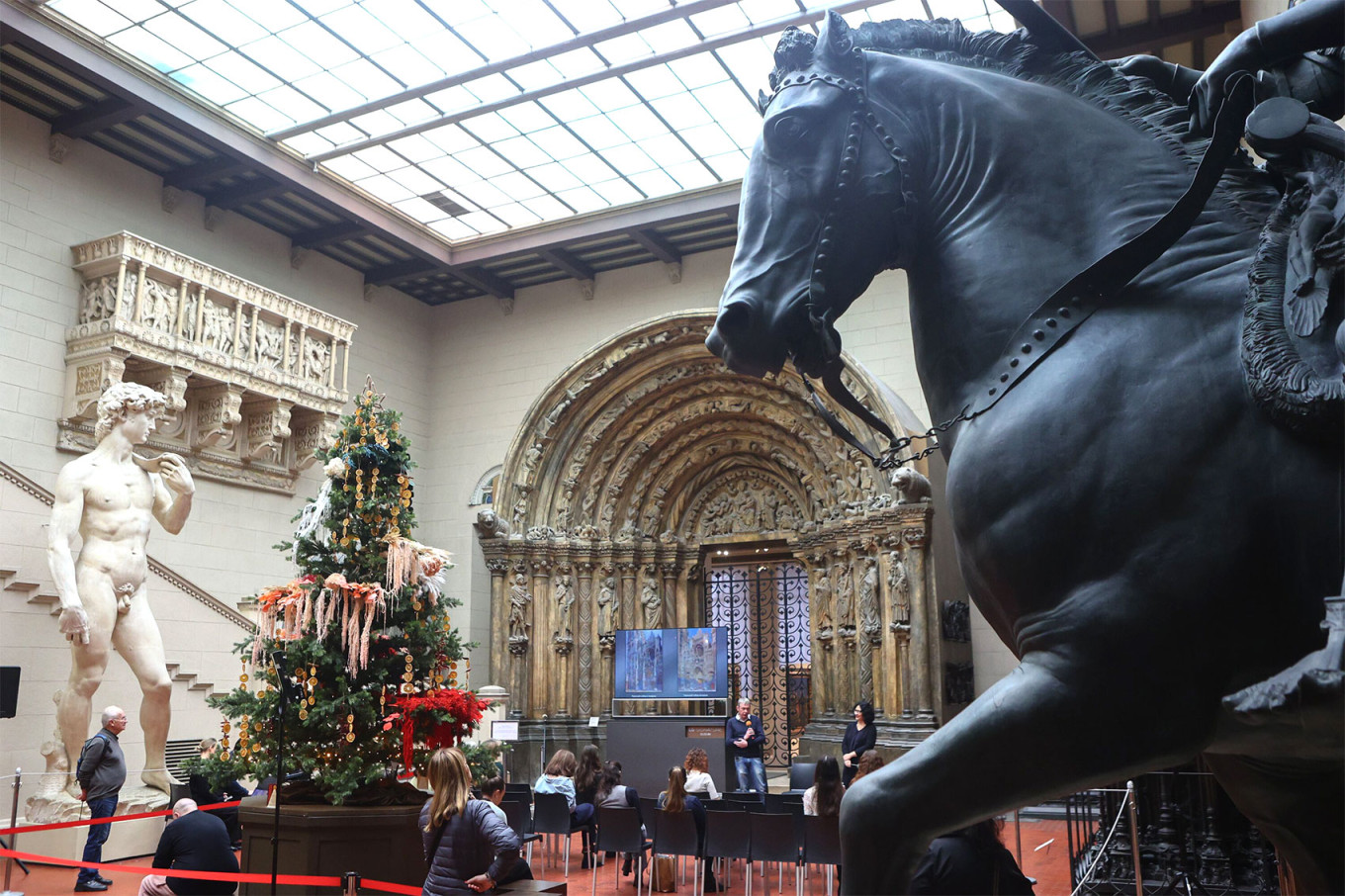
Focus on local art
Dasha Gorshkova, a Russian journalist, former editor of Vogue and author of the Telegram channel artintensity, said that in 2023 museums continued to look for new ways of working without their previous international collaborations and with significant self-censorship in all their activities. She noted some trends that have been apparent for several years.
“One of them is support for local artists and specific regions, for example, the projects 'On Your Mind' about Kostroma and 'Mirror of the Stage' about Chelyabinsk by the V-A-C Foundation [founded to support contemporary art and artists by oligarch Leonid Mikhelson in 2009],” Gorshkova told The Moscow Times. “The other trend is the opening of new cultural venues in cities and towns, such as the Byl center for contemporary art in Stary Oskol, the Belgorod region, and 'Street Art Storage' in St. Petersburg,” she said.
Development of regional programs of large museums has also continued. “All of this can be seen in the context of the cultural vacuum from the lack of dialog and partnerships with foreign institutions and foreign exhibitions. In my opinion, [museums] cannot oppose censorship in public at the moment. At best, museums can maintain a neutral exhibition background, where a viewer can find distraction, organize small exhibitions in support of local artists, and count on “therapeutic” and educational activities,” she said.
A Message from The Moscow Times:
Dear readers,
We are facing unprecedented challenges. Russia's Prosecutor General's Office has designated The Moscow Times as an "undesirable" organization, criminalizing our work and putting our staff at risk of prosecution. This follows our earlier unjust labeling as a "foreign agent."
These actions are direct attempts to silence independent journalism in Russia. The authorities claim our work "discredits the decisions of the Russian leadership." We see things differently: we strive to provide accurate, unbiased reporting on Russia.
We, the journalists of The Moscow Times, refuse to be silenced. But to continue our work, we need your help.
Your support, no matter how small, makes a world of difference. If you can, please support us monthly starting from just $2. It's quick to set up, and every contribution makes a significant impact.
By supporting The Moscow Times, you're defending open, independent journalism in the face of repression. Thank you for standing with us.
Remind me later.


